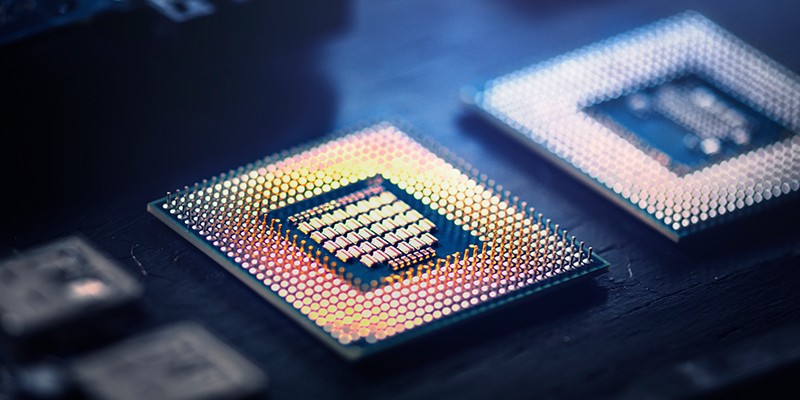What does the global semiconductor chip shortage mean to you?
What does the global semiconductor chip shortage mean to you?

Are you thinking about leasing a new 22-plate vehicle? In that case, we’d be surprised if you haven’t heard about the semiconductor shortage that’s still having a massive effect on the supply of new cars and vans, causing an issue for the automotive industry and consumers alike.
The shortage of semiconductor chips began in 2020 at the start of the Covid pandemic and is still some way off from being resolved. Some experts forecast that it might take as long as two years before the microchip shortage is fully resolved.
What is a semiconductor chip?
Semiconductor chips are tiny pieces of silicon crystal that are minutely lithographed and etched with microscopically small electrical circuits. According to technology company ASML, up to 932 billion semiconductor chips was produced in 2020 for use in every conceivable electronic device. These microchips process most tasks that a modern vehicle performs. Such is their importance in today's electronically overloaded vehicle offerings that as many as 3,000 microchips can be found in a single car or van.

What has been the impact of the semiconductor chip shortage?
Unfortunately, because several different types of microchips are produced by a relatively small and diverse manufacturing industry spread globally, glitches in the supply chain have had far-reaching consequences. In addition, events such as factory fires, poor weather, the US-China trade war and the pandemic have also contributed to the chip shortage.
It's not just the car industry that has been affected. Everything from washing machines, fridges, laptops, games consoles and smartphones has all been affected by supply limits.
The problem for the car industry is that it's relatively small fry when up against global phone, computing and electronics companies. For example, approximately 89% of revenue for one key Taiwanese chipmaker is generated from the phone, computing and 'Internet of Things' (such as smart TVs). In contrast, automotive companies are responsible for only 3% of their revenue and, as a result, will be disadvantaged as the chipmaker will prioritise their larger customers.
Is the microchip shortage going to ease off soon?
Experts say that the semiconductor issue will continue to be challenging for the next few months. Still, there is hope it will ease towards the end of 2022, which should flow through to production output. However, that's not to say it will normalise, and there is still likely to be a new vehicle supply impact into 2023.
Is your leased vehicle due for renewal?
Do you have a vehicle financed through Personal Contract Purchase or another leasing scheme which is due for renewal within the next six to nine months?
If so, you might want to consider placing an order for your next new car now. With several car manufacturers still being impacted by the semiconductor chip shortage, delivery times of new vehicles can sometimes range from three months to six months.
The good news is that we are still sourcing a wide choice of cars from manufacturers who have immediate stock available or their stock is due to arrive imminently. Or, we can factory order your vehicle and have it delivered to you free of charge.
We can also help purchase your existing PCP vehicle and clear the finance. Or, we can take your current car as part exchange for a deposit for your next lease contract.
Please watch out for some unscrupulous leasing companies who might provide you with an earlier lead time to help secure your order and then deliver bad news on the lead time a few weeks later. When you enquire about leasing a vehicle through us, we are always honest about when delivery is likely to happen from the outset and try to set the right expectations.
CALL US ON 02392 245570 FOR HELP FINDING YOUR NEXT LEASE VEHICLE.
VIEW OUR CURRENT TOP CAR LEASE CAR OFFERS
VIEW OUR IN STOCK CAR LEASE CAR OFFERS
